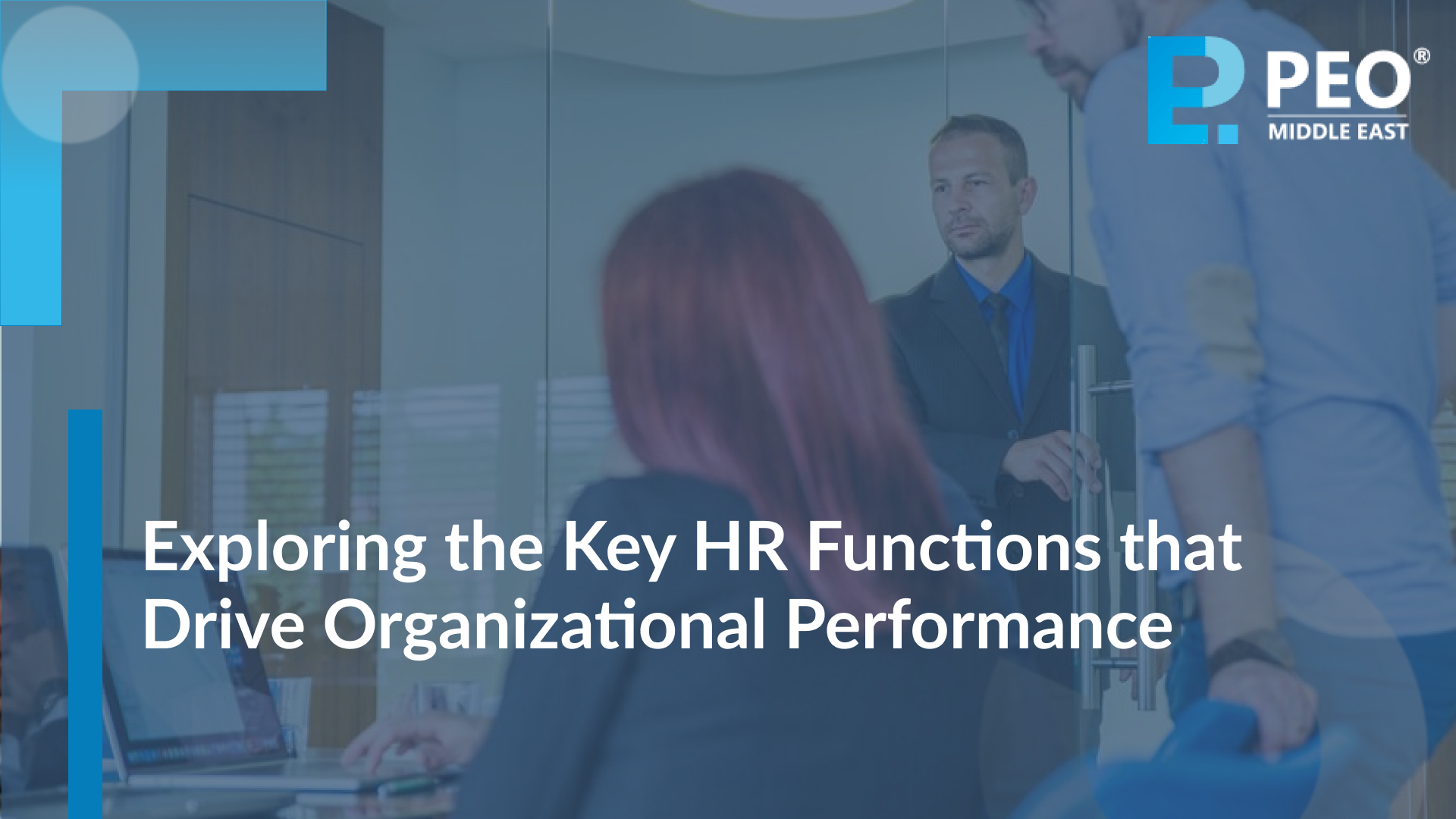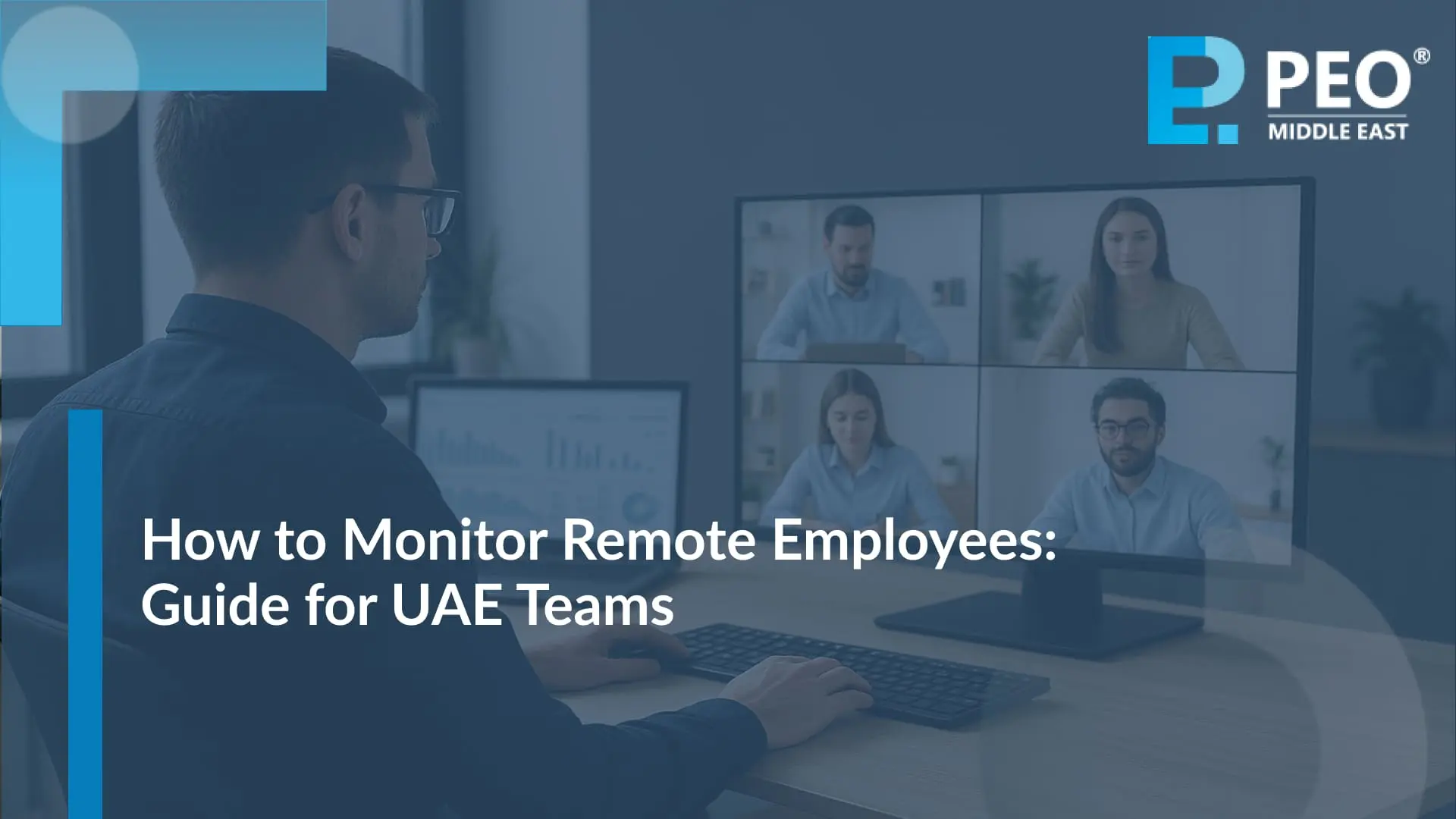HR management is the main aspect of the business growth and expansion. The key HR functions are discovering the best candidates, recruitment, training, career development, payroll, performance management, and establishing strong employee relations.
- To attract and hire the best work potential
- Develop effective policies and strategies to drive productivity and performance
- Manage workforce performance and align employee functions with business perspectives
- Align employee functions and performance with business goals and objectives
- Maximize employee satisfaction, boost morale, and maintain ethical behavior in the workplace.
- Consider employee issues and resolve disputes and conflicts with legal compliance.
- They must ensure the best HR practices and avoid discrimination and inequality to maintain a smooth work atmosphere.
Exploring Key HR Functions
Explore the main aspects and core HR functions that significantly impact businesses in the UAE’s rapidly expanding economy and diverse market. These core functions are;
Recruitment:
The main HR function is recruitment, which is to discover and hire the right candidates. Screening, hiring, and onboarding are the main recruitment functions.
Standard Salaries and Benefits:
One of the most essential HR functions is managing competitive salaries and benefits according to local regulations and industry standards. They need to manage compensation according to working hours and overtime, increments, bonuses, insurance, and other allowances as per employee position and company policies.
Work Environment:
They need to manage payroll, performance, and a smooth work environment. They must ensure ethical practices to maintain the company culture.
Work Relationship:
It’s essential to maintain positive and strong work relations with the employees to maintain a secure and healthy work atmosphere. HR managers can conduct surveys to consider employee issues, resolve conflicts, and promote a positive work environment for desired results.
Emiratization Laws:
They must adhere to UAE Emiratization laws and hire local talent in the company at a certain quota. This quota will increase gradually, and the rules can be changed periodically.
Legal Adherence:
HR management must provide efficient policies that are legal and adhere to UAE’s local regulations. For example, employee minimum compensation, work hours, overtime, paid leave, and employee security at the workplace.
Work Visa and Permits:
HR managers are responsible for arranging work visas, permits, residence visas, and accommodation for the international workforce in the UAE.
Why HR Functions Matter
HR functions are the main aspect of business growth and success. A skilled and proficient workforce can provide maximum productivity to drive success. These functions help to acquire the best work potential, provide desired outcomes, and provide a secure work atmosphere. The best HR practices can enhance employee morale, maximize productivity, and extend operational efficiency. Businesses can create an innovative culture with a competitive edge for growth and success by investing in the HR department.
HR Functions Impact on Organizations
HR functions play a vital role in business growth and overall performance. Efficient HR functions are essential to driving success in this thriving market. HR management impacts business productivity, performance, and success by using effective strategies and implementing efficient policies.
They can attract the best work potential, offer career growth and training, and provide a secure and positive work environment. HR functions and practices must align with business objectives and desired outcomes. They must provide a reliable and skilled workforce that is engaged, motivated, and productive with the highest performance and positive results for business success.
Mastering Recruitment: Strategies for Success
Effective recruitment is the main aspect of the functions of HRM when building a high-performing team. HR management must establish effective policies and strategic planning to attract the best candidates. This approach requires clear job descriptions and competitive compensation while using efficient resources for talent acquisition. HR can arrange brief discussions and interviews to identify the best work potential for the business.
Talent Acquisition Unveiled: Best Practices for Success
Talent acquisition is the main aspect and purpose of HR management. They need to discover the top-tier talent for the best organizational fit. They can implement efficient policies and best practices for hiring the best work potential for specific job roles and business growth. It’s crucial to identify the ideal and skilled workforce with the exact requirements.
They can utilize various resources to find the perfect fit for the organization. Explore the online job portals, social media channels, and online classifieds to access the top talent worldwide. Build an employer brand using effective and clear communication and experience a smooth and positive candidate experience.
Use data-driven insights to emerge with the latest recruitment trends for efficient hiring and onboarding procedures. These efficient approaches and best HR practices can help to discover the right candidate to gain long-term growth and success.
Embracing Diversity: Strategies for Inclusive Recruitment
Diversity is a powerful asset that can enhance innovation and creativity within an organization. It is essential to eliminate biases and ensure equal opportunities for all candidates to promote an inclusive recruitment process. This involves reviewing job descriptions for gender-neutral language, expanding the sourcing pool to include diverse candidates, and conducting fair and unbiased interviews.
Nurturing Talent: Strategies for Employee Development
Employee development is a critical investment that benefits both individuals and organizations. It is essential to provide employees with opportunities for growth and learning to promote a thriving workforce. This can be achieved through various strategies, such as mentorship programs, training and development initiatives, and performance reviews. By investing in employee development, businesses can gain employee satisfaction, improve productivity, and build a sustainable talent pipeline.
Strategies for Leadership Development
The main functions of human resource management play a pivotal role in promoting leadership and development within organizations. HR can identify high-potential individuals and create development plans for their relevant needs by conducting thorough assessments. Implementing mentorship programs pairs emerging leaders with seasoned veterans, providing valuable guidance and insights.
HR can facilitate leadership training, workshops, and conferences to increase specialized skills such as strategic thinking, communication, and emotional intelligence. HR helps organizations cultivate a strong pipeline of talent and ensure long-term success by investing in leadership development.
Maximizing Performance: Strategies for Effective Management
Effective HR management is essential to maximize employee performance. Managers need to monitor employee performance and ensure that they clearly understand their job duties and employer requirements. HR can provide a clear guideline for work progress, expectations, and work ethics to maintain the workplace environment. They must ensure smooth policies and clear communication to promote a positive atmosphere and create a level of trust and reliability.
It’s essential to recognize employees’ performance and offer rewards to increase job satisfaction, morale, and productivity. HR can implement effective policies and planning and motivate the workforce to maximize their efficiency and create a balanced and secure workplace for organizational success.
Engaging the Workforce: Strategies for Employee Satisfaction
HR needs to implement efficient strategies for engaging employees to maximize their satisfaction. It’s one of the primary human resource management functions. Businesses can extend employee trust, maximize performance and productivity, and create a secure workplace.
They can offer various growth opportunities for career development training programs. This approach can help recognize their efficiency, build strong employee relationships, and enhance their work potential. HR must encourage open and clear communication and provide complete support to help the workforce increase their motivation.
Building a Positive Culture: Strategies for Workplace Enhancement
Building a positive culture is essential for workplace enhancement. Organizations can create a supportive and motivating environment to promote open communication, encourage teamwork, and recognize employee contributions for organizational success. They can encourage diversity and inclusion, which can also contribute to a positive and inclusive culture.
Rewarding Excellence: Strategies for Employee Recognition
Recognizing and rewarding excellence is crucial for employee motivation and engagement. HR management can boost morale, increase job satisfaction, and foster a positive work culture by acknowledging achievements, providing public recognition, and offering tangible rewards.
Metrics That Matter: Evaluating HR Performance
Evaluating HR performance requires metrics that measure effectiveness in key areas. This includes employee satisfaction, turnover rates, time-to-hire, training effectiveness, and compliance with HR policies.
Leveraging Analytics for HR Decisions
Leveraging analytics for HR decisions can provide valuable insights. Companies can make informed decisions about talent management, recruitment strategies, and HR policies by analyzing data on employee performance, turnover rates, and training effectiveness. This data-driven approach can help optimize HR practices and improve overall business outcomes.
Conclusion
HR plays a crucial role in driving overall performance. HR can contribute to employee satisfaction, productivity, and overall business success by effectively managing talent, fostering a positive culture, and leveraging data-driven insights. They can create a competitive advantage and achieve their strategic goals by understanding and implementing key functions of HR.
FAQs
How does HR contribute to organizational performance?
HR contributes to organizational performance by attracting, developing, and retaining top talent, fostering a positive culture, and ensuring compliance with labor laws.
What are the main functions of HR in an organization?
HR’s main functions include recruiting, onboarding, training, performance management, compensation, benefits, and employee relations.
Which function of HR is most important?
It’s difficult to say which HR function is most important, as they all contribute to organizational success. However, effective talent acquisition and development are often considered crucial.






